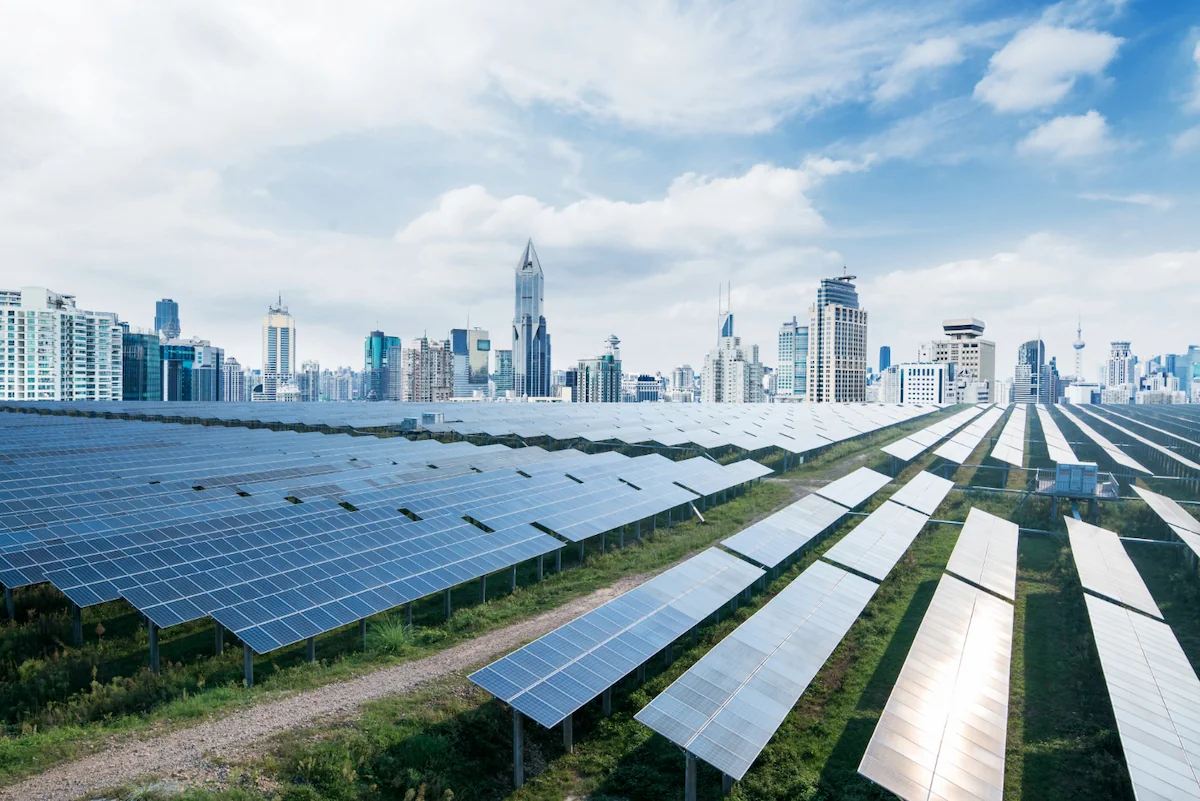Table of Contents
According to a study entitled Indonesia’s Vast Solar Energy Potential by the Australian National University, Indonesia has a huge potential for solar energy that can be leveraged to fulfill future energy needs.
The potential is predicted to produce electricity up to 200,000 TW annually, which is greater than the combined output of other renewable energy sources.
With the right utilization, the solar energy potential is expected to cover our electricity needs in 2050, at 9,000 TW annually. This aligns with the population growth forecasted to reach 355 million people in 2050.
Warga Asri must know that the technology playing a role in using the potential optimally is the solar panels. In this article, we will discuss the benefits of solar panels and how to install them. Read until the end!
What Are Solar Panels?

Solar panels are equipment that gather solar energy to produce electricity and store it. This device, also called solar modules, has various types according to the models and the capacity.
You can install solar panels in various locations, such as on your vehicle, at your farm, and on the roof. Yet, the location must get enough sunlight and be free from shadow.
To convert the sun’s heat, solar panels use photovoltaic cells made of semiconductor materials. When the sunlight with enough intensity hits, the cells can produce electricity.
Functions of Solar Panels

Aside from becoming a part of a solar power plant, solar panels also have other benefits, such as pumping water and lighting roads. Here are the functions of solar panels in some aspects:
1. Power Plant
The main function of solar panels is to generate electricity through the energy conversion process. The process is done in two mechanisms: concentration of solar energy through mirrors or using voltage differences in photovoltaic cells.
2. Water Pump
Little people know that you can use solar panels to pump and channel water. This benefit is usually implemented in areas that lack electricity to pump water due to the difficulty of accessing the location.
3. Street Lights
Some areas have used solar panels to light the street, from highways to residential areas. After storing the electricity, the battery will turn on the lamps installed in the street at night.
4. Ventilation
In maintaining the air quality, you may use the air conditioner, a ceiling fan, and a floor fan. Those tools can be operated using the energy from solar panels.
Read also: Top 5 Asian Cities Leading in Electricity Consumption
Types of Solar Panels

Despite having similar work principles, the three types of solar panels have distinctions in terms of fulfilling electricity needs. Here are some types of solar panels you should know:
- On-Grid System: This solar panel still uses conventional electricity at night, and the solar panel’s electricity during the day. This system can be used in many settings, including offices, factories, residences, and building development.
- Off-Grid System: This solar panel is not connected to conventional electricity and saves electricity in the battery. However, due to the comparatively high expense of employing batteries, off-grid devices cannot supply all of a building’s electrical needs.
- Hybrid System: This system stores the electricity in a battery, but is still integrated with the conventional electricity. When a power outage occurs, both sources (battery and conventional electric network) support each other to ensure availability.
Read also: How Conserving Energy Benefits Environment and Finance
Benefits of Solar Panels

Compared to other energy sources, solar power plants with solar panels offer various benefits, from environmental preservation to improving a building’s selling value. Below are the benefits of solar panels you can learn:
1. Encouraging Environmental Preservation
Sunlight is one of the renewable energies that does not emit dangerous emissions during electricity conversion. Moreover, using this device continuously can decrease the utilization of non-renewable energy.
2. Providing Long-Term Advantages
Even though solar panel installation is relatively costly, solar panels have economic benefits because they can reduce electricity expenses over time. Additionally, this equipment typically comes with a long guarantee of 25–30 years.
3. Improving the Building’s Selling Value
In this modern era, the use of renewable energy is getting more favoured, including solar panel installation on the roof. Besides saving electricity costs, this device can attract potential consumers who care about environmental issues.
Read also: What is Zero Waste? Learn the Benefits and How to Apply It
Solar Panel Installation
Before deciding to install solar panels, there are several factors you should consider first. This is because with the proper planning, you can earn more advantages to cover your energy needs using the equipment. The factors are as follows:
- Location selection.
- Types and advantages of solar panels.
- Capacity and number of panels.
- Permissions and regulations.
- Maintenance and monitoring.
When you have already considered those factors carefully and appropriately, the next step is trusting the installation to a trusted company like the Chandra Asri Group’s subsidiary, Krakatau Chandra Energi.
Krakatau Chandra Energy is experienced in handling various solar panel installations. There are three installation services you can choose from, which are on-grid, off-grid, and hybrid. With excellent service, KCE is ready to fulfill your energy needs!
Apart from leveraging solar panels to fulfill energy requirements, adopting a sustainable lifestyle can also contribute to environmental preservation. The #SiPalingSustainable challenge is a good place to start living this way.
Joining the Indonesia Asri program is the ideal action for altering daily routines to be more eco-friendly. You can do practical things like sorting rubbish, exercising, and taking public transportation.
Let’s start your first step in implementing a sustainability lifestyle by registering yourself right now!
Read also: Micro Hydro Power Plant: Its Benefits and How It Works
FAQ About Solar Panels
1. What is a solar panel?
A solar panel is a device that converts sunlight into electricity using photovoltaic (PV) cells.
2. How do solar panels work?
Solar panels absorb sunlight and convert it into direct current (DC), which is then transformed into alternating current (AC) by an inverter for household or business use.
3. What are the benefits of using solar panels?
They reduce electricity bills, provide renewable clean energy, increase property value, and lower carbon emissions.
4. How long do solar panels last?
Most solar panels last around 25–30 years with proper maintenance.
5. Are solar panels expensive to install?
The initial cost can be high, but government incentives, tax credits, and long-term savings on energy bills make them cost-effective.
6. Can solar panels work without sunlight?
They don’t produce energy at night, but they can still generate power on cloudy days. Excess energy can be stored in batteries for later use.
Explore More Environmental Care Action Videos:










